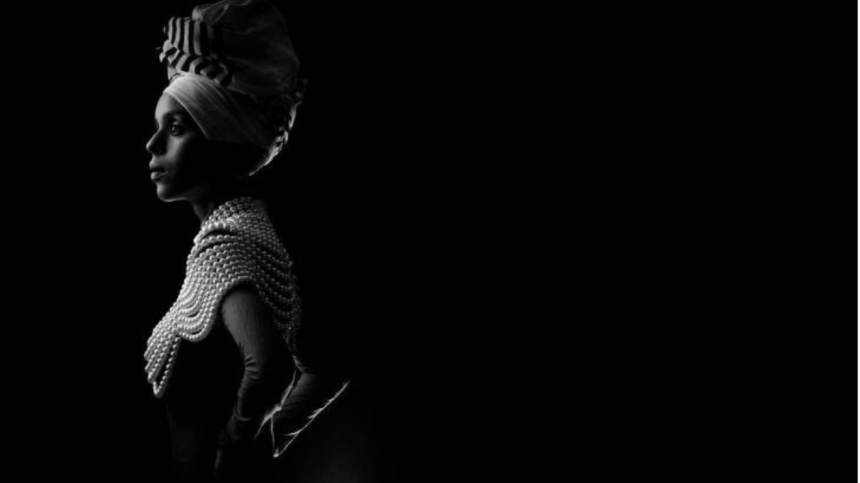It is a testament to Njambi Koikai’s dedication to her craft that just three days after her death she was en route to the next show in her popular Street Empire series.
“She was on her way to catch a flight to Kitale last Thursday when she fell ill and asked to be taken to the hospital,” recalls her long-time DJ collaborator, Selector Technix.
The popular reggae MC was making the trip ahead of the show that was scheduled for last Sunday. As fate would have it, she died at Nairobi Hospital on Monday, June 3, night following a long battle with endometriosis.
These countrywide tours turned the 38-year-old into a much-loved personality and she used her influence to relentlessly call attention to the effects of the disease that had tormented her since she was a teenager. Njambi’s path to stardom started fortuitously.
In April 2008, the Jamaican dancehall artist Turbulence who was in Kenya to headline what was dubbed The Peace Concert in the aftermath of the country’s post-election violence, was scheduled for a breakfast interview at Metro FM, then an all-reggae radio station, operated by the Kenya Broadcasting Corporation.
Among the fans who were eagerly awaiting the star best known for the hit song “Real Warrior” was Daystar University student, Njambi Koikai, then interning in the KBC Newsroom.
All she wanted was an opportunity to take a picture with her idol. But when she approached the host of the show (the writer of this article) she was given a better offer: How about a chance to sit in the studio during the interview and ask some questions directly to Turbulence.
She jumped at the chance, of course, and the next day, she turned up bright and early at Broadcasting House, armed with her professional camera (this was the pre-smartphone era). When the turbaned guest walked into the studio, Njambi let out a loud scream that appeared to startle Turbulence and his entourage.
Her on-air reaction attracted the attention of listeners including Sabina Chege, then the Controller of Commercial Radio at KBC, who was tuned in while driving to work. “Who was the young girl screaming on air?” she enquired after the show.
During the conversations that ensued, Njambi impressed the Metro FM management with her energy, and passion for reggae and within days she officially joined the breakfast team.
She didn’t possess the appearance of your typical reggae MC. Her favourite style at the time of neat skirts, and starched blouses, along with her spectacles and teeth braces, gave her a rather nerdy look. But beneath the exterior was an ambitious, tough, street-wise operator.
“When reggae was being played in River Road I would ask for the mic and they would say “no way you cannot.” And I was like “I was born in the ghetto and I will make it,” she later recounted.
After gaining on-air experience, she moved to present her own Drive Time show and the Club Metro at the weekend and adopted the stage name Fyah Mumma, from the Jamaican singer Queen Ifrica.
“She brought an unparalleled energy to every session, always pushing boundaries and striving for excellence,” recalls her Metro FM colleague MC Junior Dread. It was also at Metro FM that her long-time association with Selector Technix, who was then a member of the Black Supremacy sound system, started.
“She enrolled at the Black Supremacy DJ Academy where I was the head trainer but even though she had the passion to be a DJ, she was taking too long to learn,” recalls Technix.
“So, I suggested ‘why don’t you forget this DJ thing and instead focus on being an MC. Thankfully she took my advice seriously and the rest is history.” Together they formed a DJ-MC partnership that has taken reggae music to every town across Kenya.
“We had an amazing chemistry since 2009 and even when she was going into hospital Njambi was always positive that she would bounce back.” When the KBC management took the decision to shut down Metro FM, Njambi was deeply aggrieved but she still picked herself up and returned to the Newsroom where she worked as a Newsreader on Channel One News before resigning from the public broadcaster on March 1, 2014.
She later worked for QFM and Trace Radio.
Her battle with endometriosis was the motivation to become the face of the campaign on the importance of early detection and treatment of the disease “It is important for us to inform girls that period pain is not normal,” she said recounting her pain of 19 years and the more than 20 surgeries.
She recorded a song called Rejection and Pain in 2016 to document that journey. Mary Njambi Koikai was born Jan 24, 1986 in Nairobi. She graduated from Daystar University in 2008 with a Bachelor of Arts in Communication (Electronic Media).
At the same time, she studied French at Alliance Francaise where she met the members of Sauti Sol and became the group’s first Manager from 2006 to 2008. She was also an actress and theatre director with Heartstrings Ensemble from 2004 to 2009. In 2010 she enrolled at USIU-Africa for a Master’s degree in International Relations and French. Njambi contested the Dagoretti South parliamentary seat in 2022 as an independent candidate.
Following her death, tributes have also been paid by Jamaican reggae stars, including the legendary Burning Spear and Gramps Morgan of Morgan Heritage.



